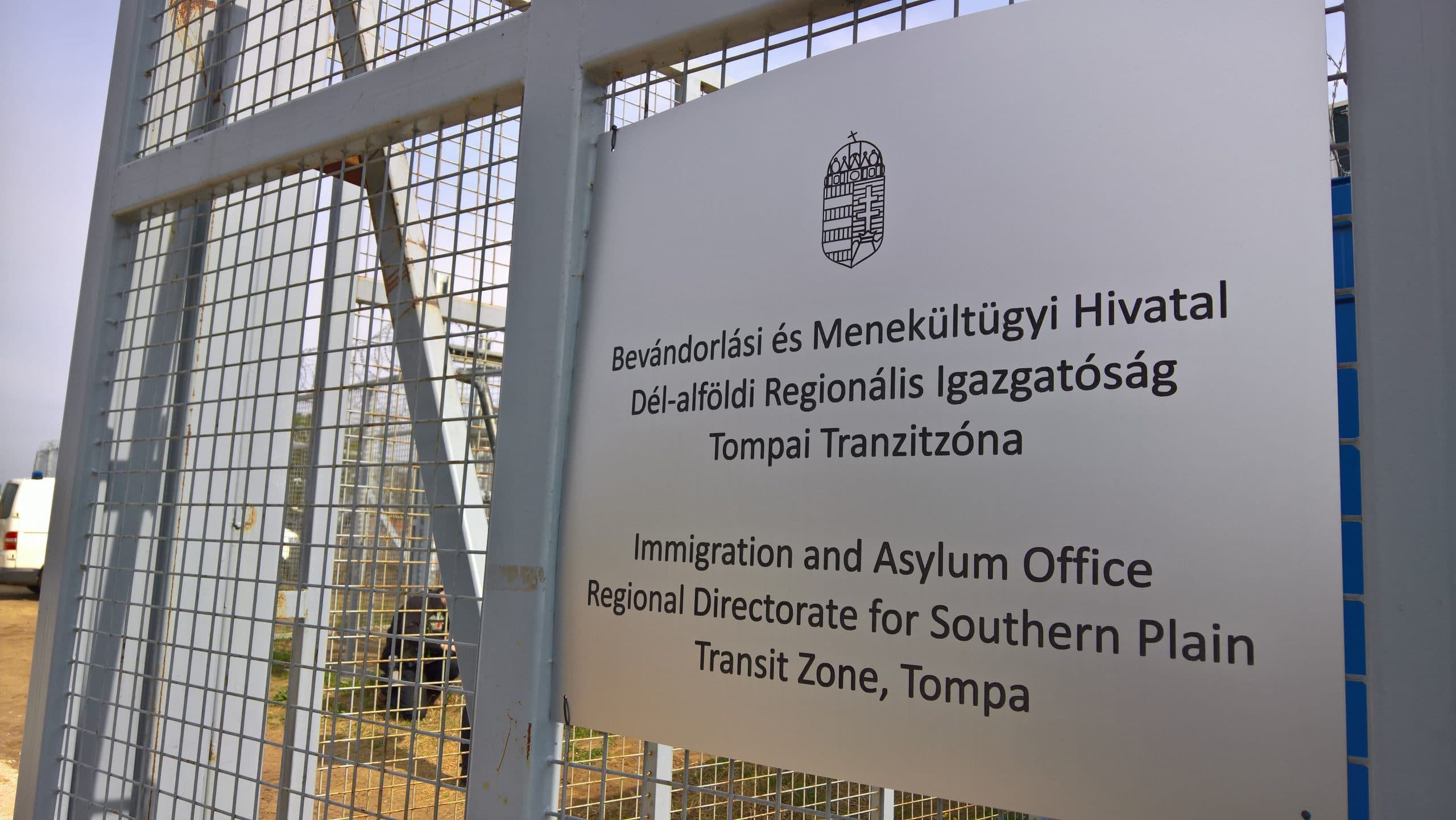Advocate General of the Court of Justice of the European Union: accommodation in the Hungarian border transit zone is unlawful detention
Budapest, 23 April 2020 — The Advocate General of the Court of Justice of the European Union (CJEU) delivered his opinion in the joint cases concerning two asylum-seeking families held in one of the transit zones in Röszke at the Hungarian-Serbian border. The applicants are represented by the Hungarian Helsinki Committee (HHC). The cases originate in preliminary ruling requests lodged by Hungarian judges in December 2019. The Hungarian judges requested, among others, the CJEU to rule on whether placement in the transit zone constitutes detention. The Advocate General’s opinion confirmed the HHC’s legal position and leaves no doubt that a placement in the transit zone is, in fact, unlawful detention. The CJEU is expected to deliver its judgment in a few weeks.

The questions posed by the Hungarian judges partly concerned the inadmissibility ground introduced in Hungarian asylum law in July 2018 that resulted in the automatic rejection of asylum applications in the transit zones. The CJEU has already delivered its judgment on this issue on 19 March 2020 in another case where the HHC had provided legal representation to the asylum-seekers in the proceedings before a Hungarian court. In that judgment, the CJEU found that the inadmissibility ground introduced in 2018 as part of the infamous “Stop Soros” legislative amendments is incompatible with EU law and cannot be applied. In today’s opinion, the Advocate General stated in this regard that in those cases where the asylum application was rejected on this inadmissibility ground, the asylum authority must continue the examination of the original asylum application. Should the Court agree with this opinion, it will become clear that Hungary, without examining the asylum applications on their merit, is unlawfully attempting to remove people stuck in the transit zones to their country of origin.
In the present case, the Hungarian judges also requested the Court to assess whether placement in the transit zones should be qualified as detention, and if so, does it constitute unlawful detention. This is relevant since if transit zones are indeed qualified as places of detention, a formal detention order must be issued for those who are placed there. An effective judicial remedy must then be available against such detention orders, and certain applicants (for example vulnerable applicants or children) cannot be detained automatically.
The Advocate General’s opinion took into consideration the Grand Chamber judgment of the European Court of Human Rights (ECtHR) in the Ilias and Ahmed v Hungary case when reaching its conclusion that the current placement in the transit zones should be qualified as unlawful detention. The Advocate General is of the view that as the CJEU may guarantee a higher level of protection than the European Convention on Human Rights, it should do so in this particular case. This case thus also marks an important milestone in the relationship between the ECtHR and the CJEU.
The CJEU is expected to deliver its judgment in the coming weeks. The Advocate General’s opinion is not binding on the Court, but it is usually decisively taken into account.
“The Advocate General’s opinion gives the hope to people who have been detained in the transit zones for a very long time, half of whom are children, that Hungary will not only examine their asylum applications on their merit but that they may also regain their liberty. The upcoming judgment will also provide clear instructions to the Hungarian authorities and courts on the correct application of the law,” said attorney Barbara Pohárnok who represents the HHC’s clients both in the legal proceedings before domestic courts and at the CJEU.